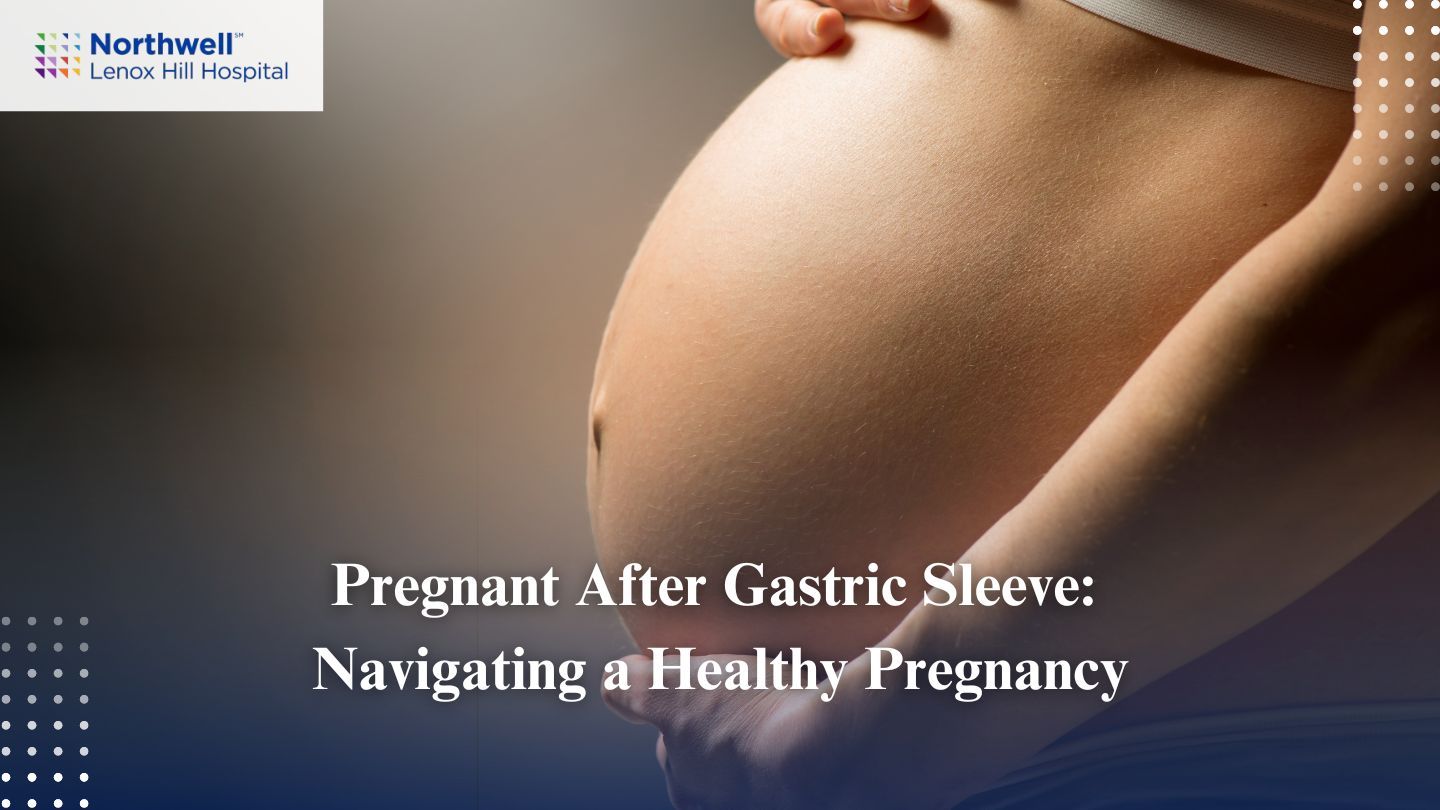
Pregnant After Gastric Sleeve: Navigating a Healthy Pregnancy
Embarking on the journey of pregnancy after undergoing a gastric sleeve surgery, one of the common bariatric surgeries, can be both exciting and challenging. As you prepare to welcome a new life, maintaining your health and well-being becomes paramount. Navigating this unique path requires understanding the changes your body has experienced and how they may affect your pregnancy. In this blog, we’ll explore essential tips and insights to support a healthy pregnancy after gastric sleeve surgery, ensuring a positive experience for both you and your baby.
Key Takeaways
Pregnancy after weight loss, particularly following gastric sleeve surgery, can enhance fertility but requires careful management of nutrition.
It is advisable to wait 18 to 24 months post-surgery before attempting conception to ensure the body stabilizes and maintains appropriate nutrient levels.
A multidisciplinary healthcare team is essential for specialized prenatal care, focusing on nutritional monitoring and the management of potential pregnancy complications.
Recommended Waiting Period Before Conception
It is often advised for women of reproductive age to postpone attempts at conception for a duration of 18 to 24 months following gastric sleeve surgery. This interlude grants the body sufficient time to achieve stable weight and optimize nutrient balances, which supports the well-being of both mother and child during pregnancy. Research indicates an elevated likelihood of complications in pregnancy that take place within two years following the operation.
To enhance perinatal and fetal outcomes, it’s beneficial to delay pregnancy until after your system has fully recovered from surgery. By giving yourself this recovery period, you elevate the prospects of sustaining a healthy pregnancy as well as nurturing a healthy infant.
Boost in Fertility Post-Surgery
Women who have undergone bariatric surgery, such as gastric sleeve, have the potential to significantly improve fertility, particularly for those who have faced infertility issues linked to obesity. Reaching a healthy weight may promote regular ovulation and diminish the likelihood of conditions that impede fertility. This can be exceptionally advantageous for those suffering from polycystic ovarian syndrome (PCOS), given that hormonal adjustments after surgery often contribute to the resumption of normal ovulation cycles.
Recognizing these enhancements in fertility as a result of bariatric surgery allows women new opportunities for conception where they previously encountered difficulties. Awareness of these advantages enables them to better strategize their family planning efforts, capitalizing on the favorable outcomes associated with weight loss through surgical intervention.
Nutritional Considerations for Pregnant Women Post-Gastric Sleeve

For pregnant women who have experienced weight loss through gastric sleeve surgery, nutrition is of utmost importance. The decreased intake of calories post-surgery can result in a lack of essential nutrients, making it crucial to gain weight appropriately during pregnancy.
To ensure proper nutrition and supplementation after such surgery during pregnancy, it’s beneficial to engage with registered dietitians knowledgeable about bariatric procedures. By emphasizing nourishing food choices and working hand in hand with these dietary experts, pregnant patients can secure the necessary nutrient levels throughout their term.
Essential Vitamins and Minerals
For individuals who have had gastric sleeve surgery, achieving a nutritional equilibrium while pregnant is vital. To prevent any shortages and aid in the growth of the fetus, vitamin and mineral supplements must be taken consistently. Essential nutrients include prenatal vitamins, protein, calcium, iron, folate (folic acid), and vitamin B12.
Folic acid holds particular significance as it assists in warding off neural tube defects throughout pregnancy. It’s equally essential to ensure an adequate supply of vitamin D for maintaining appropriate serum levels. During the initial 12 weeks of gestation, it’s advisable to steer clear of taking vitamin A in its retinol form.
Monitoring Nutrient Intake
Ensuring a healthy pregnancy involves maintaining adequate nutrient levels, which requires frequent blood tests. By routinely checking for nutritional deficiencies, these tests contribute to safeguarding the health of both mother and child. Specifically, iron plays an important role during this time. It is advised that pregnant women consume iron daily.
To monitor dietary consumption effectively and address nutritional requirements, keeping track of what you eat in a food diary can prove beneficial. This practice helps confirm that the diet contains sufficient nutrients crucial for fostering a healthy pregnancy.
Managing Weight Gain During Pregnancy

Pregnant women should establish weight gain objectives based on their pre-pregnancy body weight in consultation with medical professionals. For those who have undergone gastric sleeve surgery, engaging in safe exercises like swimming or walking is advisable.
Adhering to these methods allows for a healthy gestational weight increase that promotes the growth and well-being of the unborn child in relation to their gestational age.
Specialized Prenatal Care for Bariatric Patients
Pregnant women who have undergone gastric sleeve surgery require specialized prenatal care tailored to their individual circumstances, especially in the context of pregnancy after weight loss. It is important for these bariatric patients to collaborate with a team of professionals, such as obstetricians, dietitians, and specialists in maternal-fetal medicine.
To safeguard the well-being of both the mother and child, it’s vital that there are frequent screenings and vigilant nutritional supervision. This thorough approach assists pregnant women in managing their pregnancy more successfully and securing favorable results for themselves and their babies.
Role of a Multidisciplinary Team
It is advised that a diverse group of specialists, such as obstetricians and dietitians who have expertise in bariatric surgery, be assembled to provide thorough care during pregnancy following gastric sleeves. A dietitian with a specialization in weight loss surgery can assist in overseeing the requirements for supplements and maintaining adequate nutrition.
For those who conceive post-metabolic and bariatric surgery, consulting with a maternal-fetal medicine expert might be advantageous because of the possible risks involved. This team-based strategy aims to navigate the distinctive obstacles encountered by patients undergoing bariatric procedures throughout their pregnancy.
Regular Monitoring and Ultrasounds
Particularly after gastric sleeve surgery, vigilant monitoring throughout pregnancy is essential for evaluating fetal growth and health. Healthcare practitioners often advise ultrasounds at intervals of 4 to 6 weeks to detect any early signs of developmental problems in the fetus.
Such surveillance tactics hold special significance for patients who have undergone bariatric procedures, as they are integral to fostering a healthy pregnancy and securing favorable outcomes for both the mother and child during pregnancy.
Delivery and Postpartum Considerations

Understanding the nuances of delivery and postpartum factors is vital for women who have had gastric sleeve surgery as they transition into motherhood. Keeping a healthier weight throughout pregnancy can simplify ultrasound procedures and minimize the likelihood of complications after childbirth.
Mode of Delivery
It’s typically recommended that patients talk about their potential need for a cesarean section with their healthcare provider. Significant factors such as advanced maternal age and present body mass could greatly influence the probability of needing a cesarean section, notably in women within their reproductive years. Having conversations with healthcare professionals regarding childbirth choices can enable these women to plan for their labor experience more effectively.
Breastfeeding After Gastric Sleeve
It is strongly recommended that women who have had gastric sleeve surgery continue to breastfeed, as it poses no risk and provides advantages for both the mother and child. To satisfy the heightened nutritional demands of breastfeeding, it is crucial for these mothers to persist in their use of dietary supplements.
Ensuring a nutritious milk supply for their infants can be achieved by adhering to a well-rounded diet complemented with appropriate supplements. Seeking advice from a medical professional regarding precise dietary requirements while breastfeeding can offer extra assistance and direction.
Maintaining a Healthy Lifestyle After Pregnancy

Post-pregnancy, it’s important for women who have had bariatric surgery to continue working with their healthcare team to maintain a healthy lifestyle. This includes adhering to a balanced diet, engaging in regular physical activity, and taking recommended vitamin and mineral supplements.
Breastfeeding is highly encouraged and is generally not affected by bariatric surgery. However, it’s important to continue taking supplements to meet the increased nutritional demands of nursing. Women should also remain vigilant about the risks of gestational diabetes and preeclampsia, working closely with their healthcare team to monitor their health.
Conclusion
Choosing to embark on a pregnancy after bariatric surgery is a significant decision that requires guidance and support. Such crucial decision requires expert guidance and support.
If you’re considering a gastric sleeve in New York, our specialists at Lenox Hill Bariatric Surgery Program are here to provide the expertise you need. Contact us to learn more about how we can help you achieve a healthy and successful pregnancy journey.